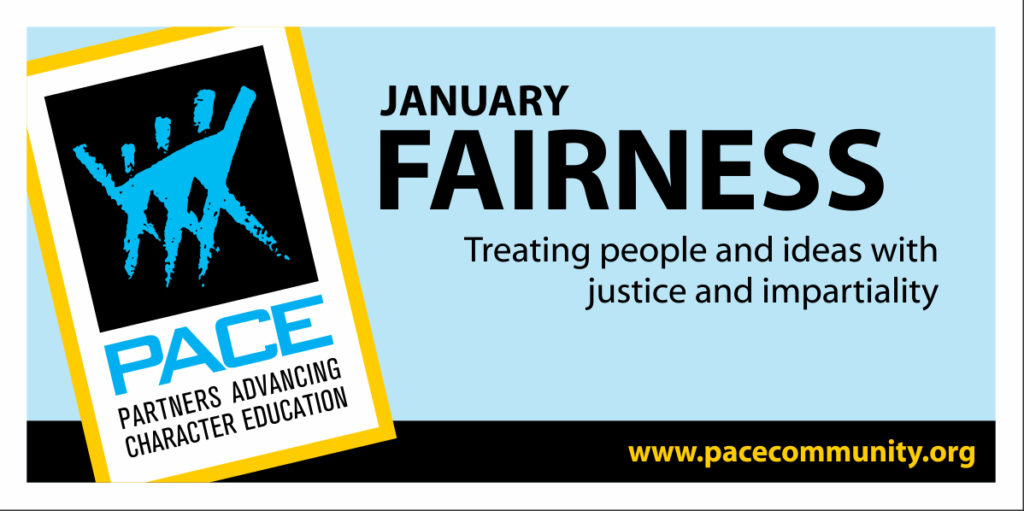“If people believe in your word, then the opportunity to make a difference is enhanced.”
 When casually asked to define an “honest person” the logical response is, “It’s someone who tells the truth.” But when honesty is revered as a character trait we need to go beyond a simple definition and ask: What attributes do we expect of someone who walks down an honest path the days of his/her life? Fortunately, we have an excellent example to help us address this question—the 16th president of the United States; yes, Honest Abe.
When casually asked to define an “honest person” the logical response is, “It’s someone who tells the truth.” But when honesty is revered as a character trait we need to go beyond a simple definition and ask: What attributes do we expect of someone who walks down an honest path the days of his/her life? Fortunately, we have an excellent example to help us address this question—the 16th president of the United States; yes, Honest Abe.
Although it’s generally assumed that Lincoln received the moniker, Honest Abe, while serving as president, in reality Lincoln “earned” the nickname by his early twenties. At that time Lincoln was barely living above the poverty line and could claim only one year of formal schooling. Yet he was respected and admired by friends almost immediately after settling in New Salem, Illinois. When town foot races were held Lincoln was selected to judge the events, when a local militia was recruited for the Blackhawk War he was elected captain, and, at the age of 23, Lincoln was defeated in his first campaign for the state legislature but received amazing local support winning 277 of 300 New Salem votes. Why was this relative newcomer so trusted by the community? What did they see in this man? Historians often mention character traits that appealed to frontier citizens: common sense, a talent for conversation and storytelling, a willingness to work hard and persevere, satisfying all debts, and educating himself to meet personal goals while making a difference in the community. However, in Lincoln’s case these outstanding traits reveal only part of the story. Lincoln’s honesty was buttressed by two other critical attributes that propelled him to heights far beyond the boundaries of New Salem: 1) living his core values and 2) telling the truth with humility. Both qualities earned him the respect of friend and foe—and helped to save the Union.
Core values should determine our everyday behavior. Lincoln’s core values were defined in the Declaration of Independence: “all men are created equal.” As President-Elect, while traveling to Washington, D. C. for his inauguration, Lincoln visited Philadelphia’s Independence Hall on February 22, 1861. In Philadelphia he stated, “I never had a feeling politically that did not spring from the sentiments embodied in the Declaration of Independence…all should have an equal chance.” For Lincoln, Independence Hall was a sacred place. As a result of the Civil War, and the subsequent passing of the 13th Amendment, emancipation was realized principally because the northern states embraced Lincoln’s core values. In a sense Lincoln was an open book, his words and actions matched. A helpful way to assess honesty and integrity is to ask: Does the walk match the talk? In Lincoln’s case the answer is surely, a “yes.”
People “witnessed” Lincoln’s honesty through truth telling and humility. Everyone, regardless of class, race or religion felt comfortable in his presence—he was approachable. Citizens could hear honesty in the president’s voice, see honesty in his words, and judge honesty by his actions. Maybe the best example of both humility and honesty is Lincoln’s Gettysburg Address; particularly the immortal sentence, “The world will little note, nor long remember what we say here, but it can never forget what they did here.” Lincoln’s humility and perspective helped to keep his brief remarks at Gettysburg focused on the real meaning of the day: this event is about dedicating the sacred memorial grounds to the fallen soldiers, and rededicating the nation to their cause. Lincoln’s words captured the moment. And, although it certainly was not his intent, his words live on, alongside the memory of those who fought at Gettysburg.
Aristotle believed that a speaker’s character is the most persuasive element of a speech. Honesty then, as a character trait, holds great potential beyond the nobility of individual morality. If people believe in your word, then the opportunity to make a difference is enhanced. Of course, the opposite is also true. If honesty and truth are absent qualities, then one’s word is meaningless. Abraham Lincoln succeeded, not because of wealth or pedigree, but because character and words matter, then, and now.
Harvey Alvy, Professor Emeritus in Educational Leadership at Eastern Washington University, continues to serve as an educator in the United States and overseas. For more than a decade he helped to mentor hundreds of prospective school leaders in the northwest through the EWU Principal Leadership Intern Program with Les Portner, Billie Gehres, and Sharon Jayne. A former National Distinguished Principal for American Overseas Schools, Harvey led schools in Israel, India, and Singapore. He is co-author, with Pam Robbins, of Learning From Lincoln: Leadership Practices for School Success. Professor Avly donated his time and knowledge to write this guest column for Partners Advancing Character Education, for which the PACE leadership board thanks him.

